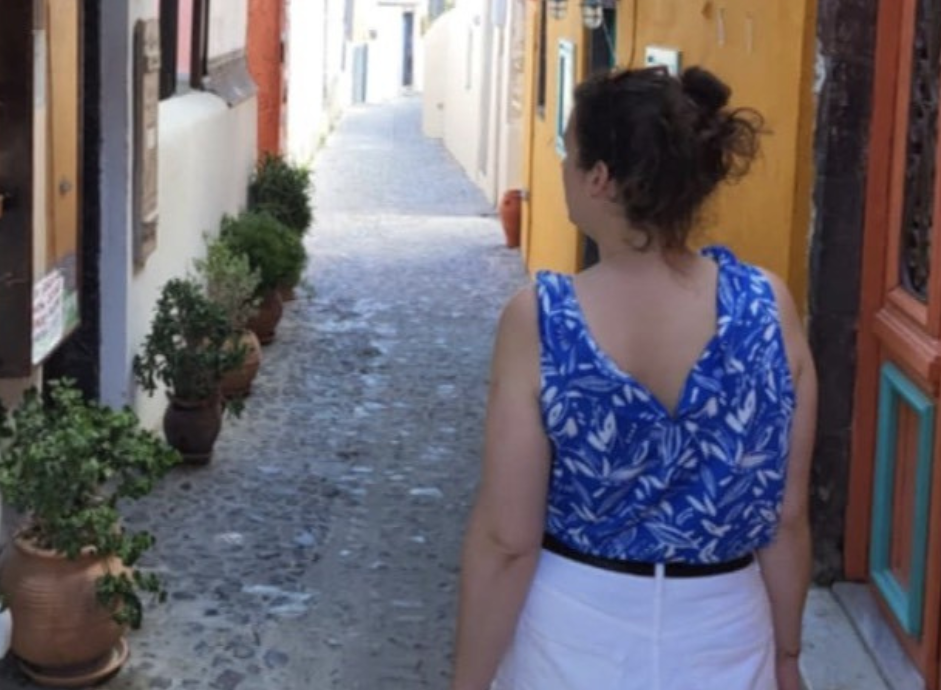Bipolar disorder: “It took me 16 years to be diagnosed!”
Published 2 Jun 2021 • By Candice Salomé
Babeillou, a member of Carenity France, agreed to talk to us about her daily life with bipolar disorder. From diagnosis to acceptance of the disorder, she tells us about her experience, including the difficulties encountered and her treatment.
Discover her testimonial below!

Hello Babeillou, thank you for accepting to share your story with us here on Carenity.
First of all, could you tell us a bit about yourself?
Hello. I'm 55 years old, married twice, divorced twice and I have a 21 year old daughter from a non-marital relationship! After having had rather eventful lives as a couple, here I am, finally, for the last 5 years, in a serene and tender relationship.
I live half of the time in Paris with my partner and the other half with my mother in the South-West of France. I am an only child and it has always seemed natural to me that I would take care of her in her old age. Mum is much more than a mother: she is my friend, my confidante, the one I laugh with the most. In short, she is great!
I like reading, singing, surfing the web and watching series. And I love cats: I have 8 of them!

You have bipolar disorder. Can you tell us about when you were diagnosed? What prompted you to seek help? How long did it take to make the diagnosis? How many doctors did you see?
It was my friends who alerted me to my condition when I was in a hypomanic phase, without anyone, let alone me, knowing what it was. I was told that I was unwell when I felt at my best. I didn't pay any attention. At the time I was going through a divorce, had little income and my daughter was 9 years old. A few months later, a friend offered to pay for my first 4 sessions with a therapist she knew who used CBT (cognitive behavioural therapy). I immediately trusted her. And I continued the sessions. I took a lot of tests, and after about ten sessions she read me a text. When she finished, I was in tears. It was about the definition and symptoms of bipolar disorder. And it described me to a T. I wished I had another diagnosis. So I went to a psychiatrist who had been recommended to me (he is still my "loony doctor" by the way). Same diagnosis. 16 years passed between my first antidepressant and the diagnosis of bipolar disorder.
How did you feel when you were diagnosed? What did it change in your life? How did your family react?
At first I was devastated by the diagnosis. Was I crazy? When did I start being so? I read a lot about this mood disorder and read testimonials. My psychiatrist and my therapist also helped me a lot. It took me about a year to go through my life and try to understand when I was making my own decisions, with my own personality, and when the bipolar disorder was in control. Eventually, the diagnosis became a relief. The unhappiness I had always experienced had a name.
Mum was there for me, as always. I shared all my findings with her as I went along. And she agreed to be my warning signal: knowing me better than anyone else, she knows how to tell me if she perceives signs of pre-depression or the beginning of a hypomanic phase, despite my treatment. She has my complete trust.
Some people around me have become more distant and even cut me off. This hurt me without really surprising me.
On the other hand, the attitude of my friend of more than 25 years was the most painful: slowly, she detached herself under false pretences, putting more and more distance between us, to end up confessing to a common friend (who is still present) that she couldn't handle my illness.
How has bipolar disorder manifested itself in your life? What impact has the disorder had on your social life? What about on your professional or family life?
My first urge to commit suicide crossed my mind when I was 10 years old. I was depressed from a very early age, so when I felt bad, I would cut my arms or bang my head against the wall. I always felt like I was different from everyone else. My parents said I had a 'peculiar' character, going from sulky or unpleasant moods to very active phases.
I always found it difficult to make friends. On the other hand, my sex life was very active relatively early for my time.
Between the ages of 27 and 34, I tried two therapies with psychologists, started antidepressants, attempted suicide, and underwent 5 years of analysis with a psychiatrist-psychoanalyst who found nothing...
I stopped everything when I moved to the suburbs. Moreover, my daughter was born and I also took care of the two little girls from my daughter's father's first marriage.
Over the years, I often fell back into depression and also experienced wonderful periods when I slept little, had 10 new ideas or desires a minute, made decisions on the spur of the moment, lost weight quickly, worked non-stop for 12-15 hours, spent more money than I earned and had a totally unbridled libido. And I thought this was normal... I felt fantastic.
Are you taking any medications? Are they effective? Are there any side effects?
It took about 2 years before my psychiatrist finally found a cocktail that worked for me. All of the medications recommended in the first instance had side effects that I couldn't handle. I am currently taking 300mg of valpromide (5 per day), 60 mg of Cymbalta (2 per day) and 22 drops of Laroxyl each night. I have never been able to stop the antidepressants. Every "withdrawal" treatment was a failure: I was constantly dizzy.
I wouldn't stop my treatment for anything in the world. First of all for the sake of the people around me; I wouldn't want to hurt them. I remember how aggressive I could be, how delirious I could be in my desire to change or even break everything in my life, my relationships, my job.
But I don't want to stop for myself either; there too, I remember periods of deep unhappiness and discomfort, an inexplicable inner pain that makes you want to scream, to end your life.
So, of course, there are side effects. First of all, I gained 2 stones. I liked to write beautiful texts, sometimes poetry, I had, I think, a certain style. All that went away with the treatment. And for about two years now I've had more and more cognitive problems: lack of concentration, short term memory and my hands are shaking more and more. It's not just the treatment for bipolar disorder. I also take a lot of painkillers for fibromyalgia.
Today I don't work anymore. Too many cognitive difficulties and also too much pain due to the fibromyalgia... It's difficult to accept. I hope to return to a different and less tiring activity later on.
You say you have worked a lot on yourself. What have you implemented in your life? What have been the benefits?
The psychotherapist who was able to detect my disorder, even though I know that it was not her role, saved my life in a way. I continued to see her for over 2 years through sessions of CBT. These sessions, as well as my monthly visits to the psychiatrist, allowed me to learn my own symptoms and signs of relapse, a bit like psychoeducation, but without the group work.
I moved to the countryside to be closer to my mother, and above all to live in a less stressful environment than the Paris area. I also stopped drinking alcohol.
I continued to work on my own, particularly through reading and some training courses, opening myself up to Transactional Analysis, Neuro-Linguistic Programming and Non-Violent Communication. I also practice meditation.
This "work" has been facilitated by my profession. Indeed, I have been self-employed as a coach in adult training, with themes like management, written, oral and interpersonal communication and, in recent years, personal development.
For almost a year now, I have been under the care of the medical and psychological centre in my district.
I feel at peace after all these "rollercoaster" years. The diagnosis and the work done over the years have enabled me to know myself better and to be more attentive to others. It seems that I have become a "good listener"!
Of course, some things haven't changed. I am still hypersensitive, but when an emotion hits me hard, I welcome it and try to understand the reasons for it so I can deal with it. A few other downsides: my sleep is still very disturbed. And I have binge eating disorder.
Do you talk easily about bipolar disorder? What do the people around you think when you tell them? Have you always been able to talk about it so openly?
After I was diagnosed, I needed to talk about it very frequently to those around me. Then, seeing the reactions described above, I didn't want to talk about it anymore. Until one day I decided to talk about it during my training sessions. One way or another, faced with learners who often had doubts about their skills, or lacked self-esteem, I opened up about my illness for several reasons: on the one hand, to establish a climate of trust so that the trainees could open up about their difficulties. Secondly, to show that a mental illness does not prevent one from having a social and professional life. And finally, to raise awareness of this illness, which many people talk about without knowing what it is.
The feedback has always been positive. I think this has been the case because I am no longer afraid of the way others look at me.
Now I talk about my disorder very easily and openly with the people I meet. They are surprised and then interested in understanding.
What advice would you give to Carenity members who are also living with bipolar disorder?
Having to take a treatment for the rest of your life can be scary. However, in my opinion, it is one of the three fundamental pillars for living with this disorder in peace. The other two pillars are a life with as little stress as possible and therapeutic support.
Find activities that are fulfilling and soothing. Do yourself a favour. You deserve it. Because no one else knows how much pain you have gone through or are going through.
Any final words?
I often say this: "I have a mental illness, but I am not my mental illness". And I repeat it to you all too. Repeat it to yourself every day when you wake up.
Our illness is like a stranger that has moved inside of us without asking our permission. So when the symptoms slowly come back to bother us, give it a good kick in the butt and take a deep breath.
Many thanks to Babeillou for sharing her story with us on Carenity!
Was this testimonial helpful to you?
Share your thoughts and questions with the community in the comments below!
Take care!
1 comment
You will also like

“I’ll be bipolar until the day I’m buried, but I’m in recovery”: Paula-Rose’s story of strength and hope
29 Oct 2025

 Facebook
Facebook Twitter
Twitter


